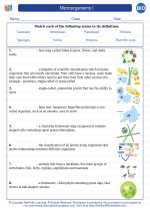Astronomy
Astronomy is the scientific study of celestial objects such as stars, planets, comets, and galaxies, as well as the phenomena that occur outside the Earth's atmosphere. It is one of the oldest sciences, and has played a significant role in human history and culture.
Topics to Cover:
- 1. The Solar System
- 2. Stars and Galaxies
- 3. The Universe
- 4. Celestial Phenomena
1. The Solar System
The Solar System consists of the Sun, eight planets, their moons, and other objects such as asteroids and comets. Key concepts to study include the formation of the Solar System, the characteristics of each planet, and the motion of celestial bodies within the Solar System.
2. Stars and Galaxies
Stars are massive, luminous spheres of plasma held together by gravity. Galaxies are vast systems of stars, gas, and dust. Study the life cycle of stars, the classification of galaxies, and the structure of the Milky Way galaxy.
3. The Universe
The Universe is all of space, time, matter, and energy. It includes billions of galaxies, each with billions of stars. Learn about the Big Bang theory, the expansion of the Universe, and the cosmic microwave background radiation.
4. Celestial Phenomena
Explore phenomena such as eclipses, meteor showers, and the phases of the Moon. Understand the causes and observable effects of these events.
Study Tips:
- Review class notes and textbooks for each topic.
- Use visual aids such as diagrams and animations to understand complex astronomical concepts.
- Engage in stargazing and observe celestial phenomena whenever possible.
- Practice solving problems related to astronomical calculations, such as planetary motion or stellar evolution.
- Stay updated with current astronomical discoveries and news.
By covering these topics and following the study tips, you can develop a comprehensive understanding of astronomy and its significance in the study of the universe.
[Astronomy] Related Worksheets and Study Guides:
.◂Biology Worksheets and Study Guides High School. Microorganisms I
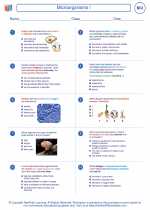
 Worksheet/Answer key
Worksheet/Answer key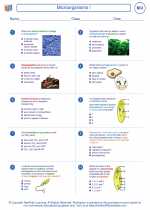
 Worksheet/Answer key
Worksheet/Answer key
 Worksheet/Answer key
Worksheet/Answer key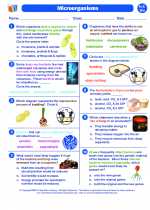
 Vocabulary/Answer key
Vocabulary/Answer key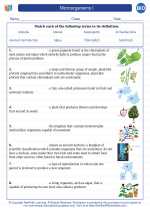
 Vocabulary/Answer key
Vocabulary/Answer key
 Vocabulary/Answer key
Vocabulary/Answer key
 Vocabulary/Answer key
Vocabulary/Answer key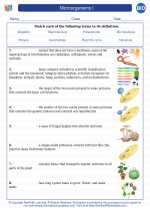
 Vocabulary/Answer key
Vocabulary/Answer key